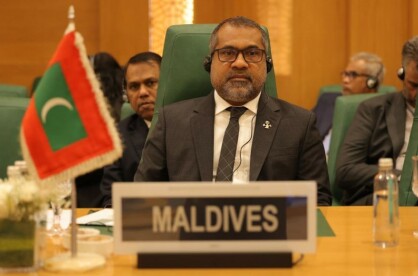Achieving fiscal sustainability
Interactions between politics and fiscal policy on economic outcomes

Interactions between politics and fiscal policy on economic outcomes

This is part three of a three part exploration of the Maldives' Macroeconomic stability and growth. For part one on macroeconomic stability and long-term growth, click here. For part two on why per capita development cost in the Maldives is on the rise, click here.
In economics and political science, fiscal policy is the use of the government budget - revenue collection (taxation) and expenditure (spending), to influence the economy. Changes in the level and composition of taxation and government spending can impact aggregate demand and the level of economic activity, the pattern of resource allocation and the distribution of income. A good fiscal policy is designed to promote the economic welfare of the public as a whole and not partial interests of narrow groups.
In the real world, however, the question of what fiscal policy should be is usually answered from a political perspective and tends to seek policies benefiting a narrow alignment of interests, with the concept of "general welfare" often ignored or misused. The electoral programme of each successive party in power (particularly where it was prepared while in the opposition) is usually prepared with greater attention to attracting electoral support than a careful balancing of long-term national interests. When the time comes to put that programme into action, oftentimes they are faced with such grave questions as to whether the proposals are administratively possible, whether they will have the desired results, whether the country can bear the cost or whether they are really in the overall interest of the country.
Yet, there is little point in criticizing fiscal policy because it "attracts votes" and the formulation of fiscal policy lies at the dead center of a democratic government. It represents a compromise between powerful economic forces and very divergent economic forces seeking to use the financial machinery of the government to promote their own ends.
The onset of multi-party politics in the Maldives strikingly illustrated the intersection of politics, economics and other considerations. Economists have long warned that the Maldives was likely to face serious economic crises, including the potential for a debt crisis, and called for policies to ensure long-term macroeconomic stability.
Yet, in the face of pressure from their constituents, politicians, with focus on the next election, find little incentive to invest their political capital to address the possibility of a future crisis and are unprepared for large scale economic shocks of the magnitude such as posed by the tsunami of 2004 and the COVID-19 pandemic.
The response has always been to divert resources away from more important development areas and avoid the much needed structural reforms. Failing to address issues of long-term macroeconomic instability and financial independence, makes everyone worse off in the long-term. Fragile developmental gains made over many decades of hard work can turn in to a disaster, with no prior warning.
While many problems of public expenditure budgeting are common to virtually all countries, the goal is to design and apply a rational fiscal policy acceptable to most of the community and one that supports macroeconomic stability. What changes will encourage this approach? In order to successfully administer fiscal policy, a combination of administrative, legal and institutional changes that supports a sound fiscal framework, are needed and must be encouraged. It must be appreciated that although politics has a decisive influence on fiscal policy formulation and outcome, fiscal policy management, by its very complexity, requires the assistance and advice of a competent and technically trained management.
To minimizes temptations to create protracted macroeconomic instability, budget rules anchored in the constitution and legislations and emphasizing fiscal responsibly is necessary, but not sufficient. It is also essential that no new initiatives (law, regulation or an action taken) should create extra-budgetary spending. Fiscal policy must encourage collective responsibility at all levels of society. Evidence across the world suggests that strong budget rules exert a disciplinary influence on fiscal policies and have become a widespread tool for pursuing sound and successful fiscal policy.
At the same time, countries must strike a balance between the discipline necessary for macroeconomic sustainability and the discretion necessary to respond to changing demands. The combination of discipline and discretion is arguably the most important and distinctive feature of a credible fiscal policy. A fiscal framework that supports fiscal responsibility requires that all expenditure must be matched by a revenue plan and numerical limits with sufficient flexibility on spending. Internal control measures supported by strong audit compliance should monitor budget rules, correction mechanisms and circumstances that trigger extraordinary situations. The reports of fiscal findings and other macro-fiscal data must be effectively and regularly communicated to the public.
Budgeting is the key function of developing a fiscal framework. Recognizing that an annual budget is limited in linking long-term strategic goals and objectives with their financial planning, many governments have moved to a multi-year budgeting framework. A multi-year budget could be a three-year or a five-year budget, depending on how the government chooses to plan for the future. By implementing a multi year budget, governments are in a better position to consider the long-term impact of budget requests. It also gives the government the ability to give more consideration to issues of long-term macroeconomic stability and address structural policies to improve economic resilience for the long-term.
The transition to a multi-year budget, however, doesn’t come without its own challenges and can take many forms, depending on the government’s needs. No matter what format one chooses and the many challenges encountered, multi-year budgets have always helped governments plan to better for the future, to promote economic welfare more equitably and to support greater financial resilience.
Part one; Macroeconomic stability and long-term growth
Part two; Why per capita development cost in the Maldives is on the rise



